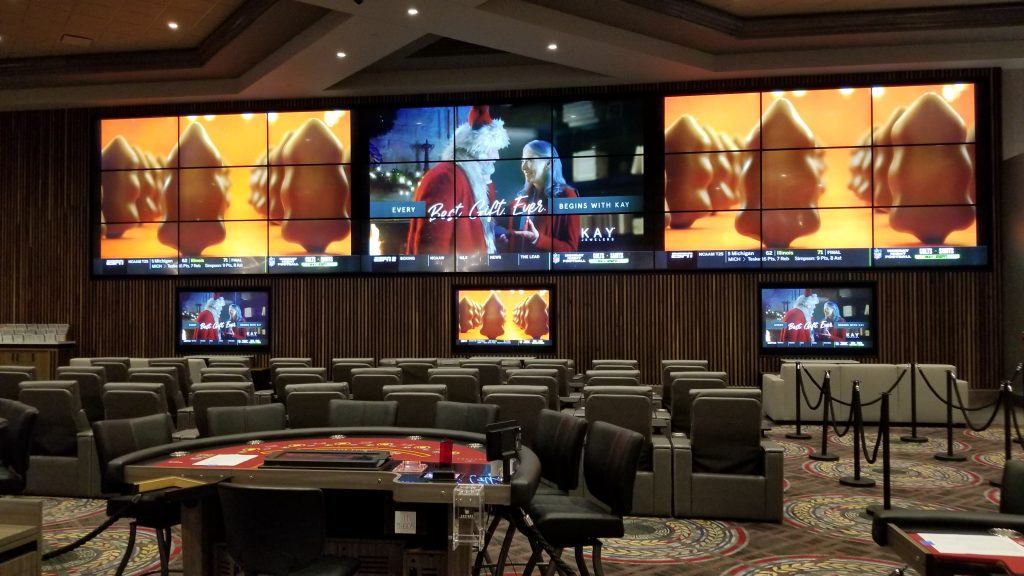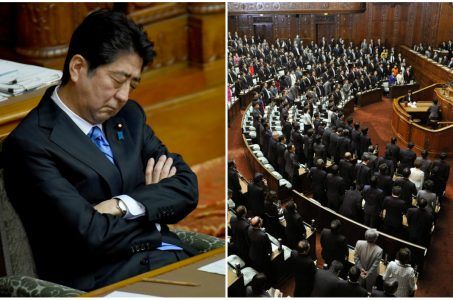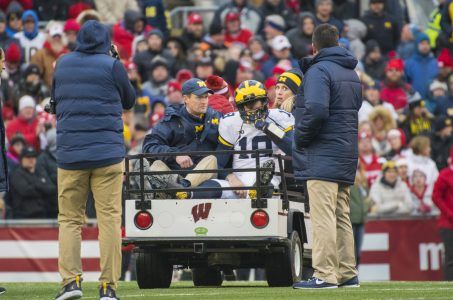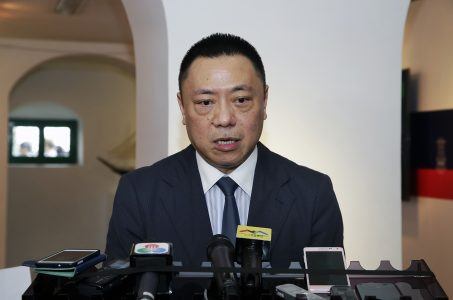Indiana COVID-19 Casino Reopening Plan Requires Masks at Table Games, Encourages PPE for All Guests
Posted on: May 21, 2020, 05:00h.
Last updated on: May 21, 2020, 02:35h.
Indiana Gov. Eric Holcomb on Wednesday announced that the third stage of the state’s COVID-19 reopening plan would take place a couple days sooner than expected. However, that doesn’t translate into the state’s casinos opening sooner.

Officials from the Indiana Gaming Commission (IGC) expect casinos will reopen “after the beginning” of stage four, which is slated to take effect on June 14. Although that date, like others in coronavirus recovery plans, is subject to change based on the success of containing COVID-19’s spread across the state.
Just as in other states, casinos will need to submit a reopening plan that the IGC must approve before they can welcome back their patrons. On the commission’s Web site, it provides a document that details the minimum standards the casinos must meet before they can reopen.
IGC Deputy Director Jenny Reske told Casino.org the guidelines will likely be updated as the reopening process continues. Some casinos have already started bringing staff back to prepare the documents needed for state approval, she added.
The current guidelines call for workers and guests to receive health screenings. The screenings need to include questions asking if the individual has had any cold or flu-like symptoms in the past two weeks, had close contact with someone who tested positive for COVID-19 in the last two weeks, and has either traveled to a coronavirus warning list country or been with someone who has in the last two weeks.
A “yes” answer to any of those will keep the individual out of the casino.
PPE Required at Table Games
Other measures include providing disinfecting products at entrances and exits, with guests required to sanitize their hands before entering the gaming floor. Casino greeters will also administer non-invasive temperature readings for patrons. Those who register at 100.4 degrees Fahrenheit or under will be allowed to enter.
Electronic gaming areas must abide by the six-foot social distancing guideline, with machines deactivated and chairs removed to ensure players are appropriately distanced. The same protocol applies for sportsbooks and kiosks.
Table games will be limited to three players each, with roulette limited to four players and craps tables restricted to six players. Poker rooms and Pai Gow poker will not be allowed. Casinos must replace cards at the start of every shift, and gaming chips must be disinfected every two hours. No smoking will be allowed at the tables.
All casino employees must wear personal protective equipment (PPE) while on the floor. While all table players must wear masks, the commission guidelines “highly encourage” the use of masks and other protective equipment for slots players, and casinos must make it available to patrons upon request. Casinos can also opt to make such equipment mandatory for all players as long as they have procedures in place for those who fail to comply.
Capacity Limited
When Indiana casinos reopen, capacity will be capped at either 50 percent or at the number of seats available, taking into consideration social distancing guidelines plus another 50 percent. Whichever number is fewer is the one that must be applied.
For example, a casino that normally has 2,500 seats would be limited to 1,250 patrons. However, if they can only effectively make 800 seats available after applying social distancing guidelines, then their limit would be 1,200 patrons.
Reske said that some casinos may be able to take advantage of extra floor space so they can fit more slots and tables while keeping patrons a safe distance from each other.
I think all the casinos have a good opportunity to comply with social distancing and the environments they have,” Reske told Casino.org. “Obviously, the tighter the space and the more pinch points the property has, the more challenges they’re going to have in achieving social distancing. But I think that we’ve put forward a plan that each operator can successfully implement.”
No food or drink will be allowed on the gaming floor during the first reopening phase. While restaurants adjacent to the casino floor must abide by state guidelines, nightclubs and buffets will not open immediately. Valet service and promotional events will also be suspended.
The full plan can be found here.
Union Wants Employee Concerns Addressed
In devising the guidelines, Reske said IGC officials reviewed plans already released by casinos, as well as talking to colleagues in other states. They also looked at information from UNITE HERE, a labor organization representing employees at five Indiana casinos.
“We’re taking information from any source that provides it at this point,” she told Casino.org “As a regulator, when you’re in a position to make decisions, the more information you have, the better the outcome is going to be.”
UNITE HERE Local 23 President Stuart Mora told Casino.org the state needs to produce a plan that takes into account employee concerns.
The local, one of two in the state, represents employees at two Caesars Entertainment properties. Mora noted the company reported $2.8 billion in cash-on-hand in its latest quarterly report. Yet, it still chose to furlough nearly all of its workers indefinitely, and only guarantee health insurance coverage through June.
“We cannot rely on casino companies to do the right thing,” Mora said. “We’ve already seen what has happened in the meatpacking industry in Indiana and across our country. We need Gov. Holcomb and the Indiana Gaming Commission to establish and enforce a high standard for COVID-safe casinos to protect employees and patrons. This standard must include sufficient wages and access to affordable health care, so employees won’t choose to come to work sick because they can’t afford not to work.”
The current IGC recommendations tell casinos to direct their workers to stay home if they’re not feeling well. Casinos also cannot discipline employees or issue points toward termination for missing work if they’re experiencing COVID-19 symptoms, are under quarantine, or have tested positive for the virus.
The IGC, though, encourages casinos to consider financial incentives for employees with care.
“Casinos shall be sensitive to the fact that incentives or bonuses tied to attendance may encourage employees to come to work while sick, and may wish to be flexible in administering any such programs during this time,” the IGC wrote.
Related News Articles
Most Popular
Mirage Las Vegas Demolition to Start Next Week, Atrium a Goner
Where All the Mirage Relics Will Go
Most Commented
-
Bally’s Facing Five Months of Daily Demolition for Chicago Casino
— June 18, 2024 — 12 Comments
















Last Comments ( 6 )
What about the race tracks?
casinos should be fun!! im not going until i dont have to wear a mask!! what fun is it to sit at a table with a mask on like an idiot..no thanks ..same applys to vegas...id love to go ..but i wont until these ridiculous restrictions and masks go awayn.. until then ill save my money..
Seems like you should be able to have a bottled water while playing slots. I usually play slots for 4 or 5 hours that will be difficult without a drink of any kind
Makes no sense.Enough places are open.This should be too.
At what time will the Gaming Commission be putting out guidelines for Clubs and taverns for pull tabs and machines where patrons purchase pull tabs as well as rules for bingo and 50/50 ticket drawings? Will there be a need for a designated place for the selling of pull tabs?
The quoted comments regarding safe protocols are valid. We are seeing unsafe practices in what' seems to be a free for all in some casinos in WA state. As a casino professional we are worried that our a=sfaety isn't a priority. We are also concerned that we are being pulled from unemployment to make less money on the floor. Luckily, many properties have kept our benefits intact and we are seeing the premiums being covered at no cost to the employee. We are grateful for everything, but still very concerned. Thank you for sharing the valuable insight.